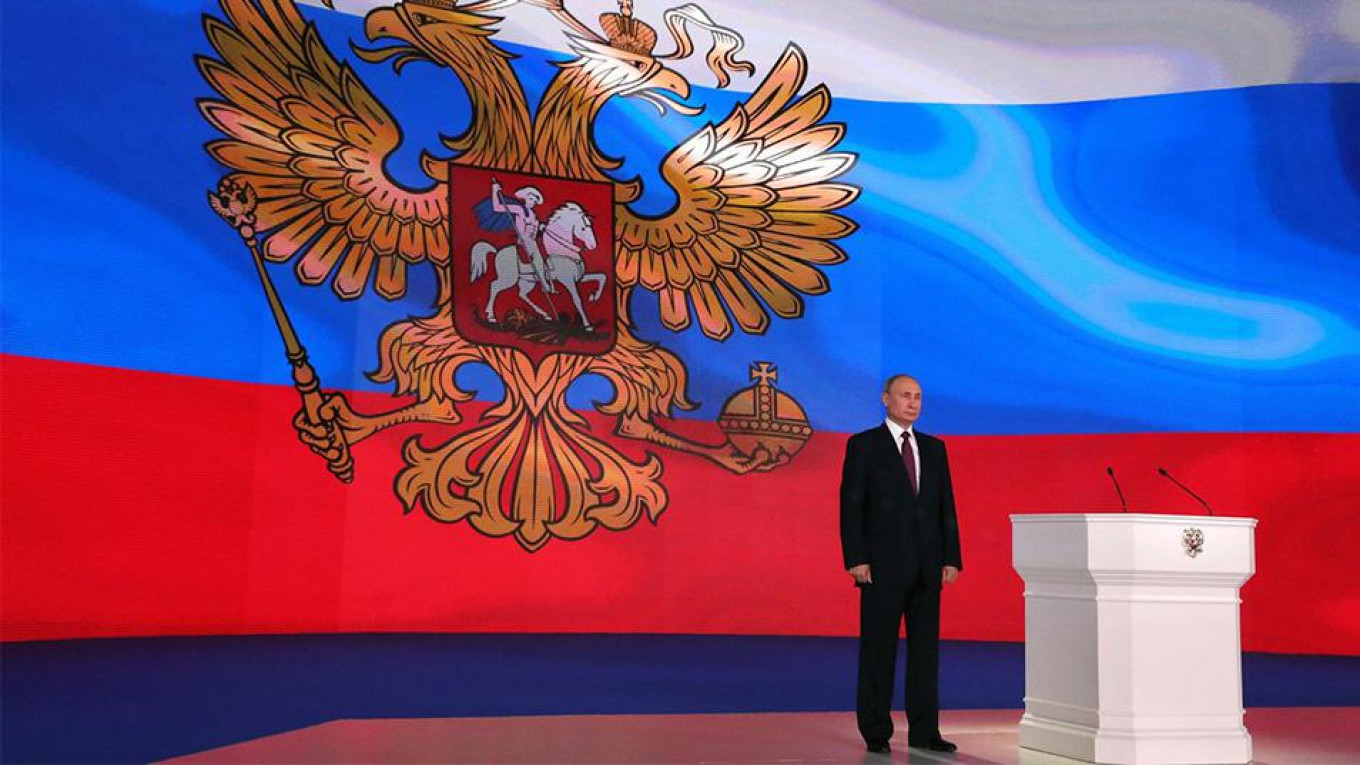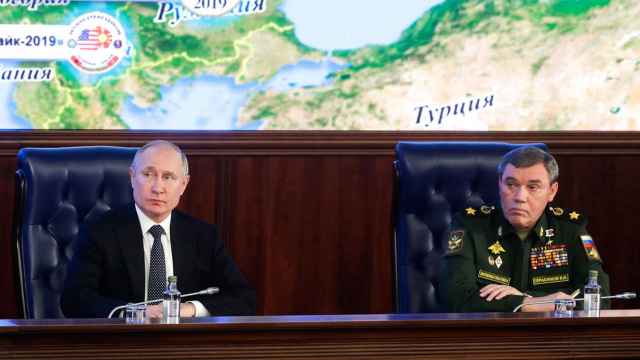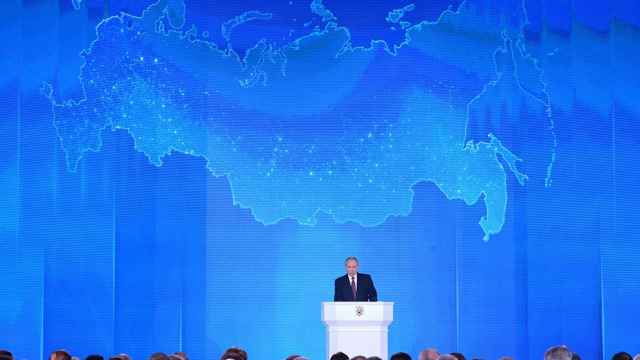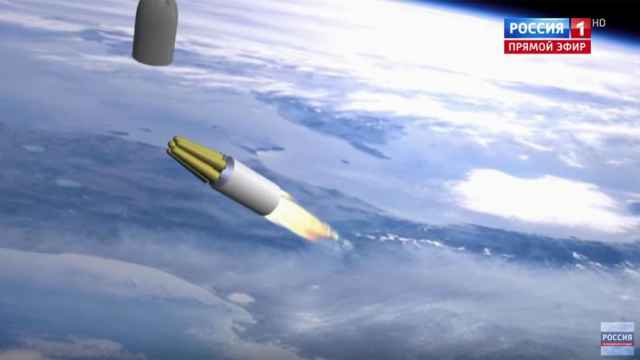Of all the annual addresses Vladimir Putin has delivered to Russia’s Federal Assembly since becoming president in 1999, Thursday’s speech was the most militarized.
Although Putin began by talking about modernizing the Russian economy and reducing poverty, most of the speech — and accompanying videos — were devoted to guns rather than butter. While the parliamentarians clearly welcomed Putin’s military showcasing by offering frequent applause, the rest of the world felt a distinct Cold War chill.
His warning that Russia would respond to a nuclear attack on an ally with a nuclear counter-strike is consistent with the language of Russia’s current military doctrine. But many of his other statements broke new ground in post-Soviet Russia’s belligerency toward the U.S. and its allies.
His tedious listing of Russia’s new and not-so-new R&D in the strategic attack systems domain, for example, was reminiscent of Nikita Khrushchev’s claim that Soviet Russia was producing rockets like sausages. It was a claim the Soviet leader made at the height of the Cold War.
Putin’s repeated emphasis on the superiority of the newly-developed systems over those of Russia’s competitors comes as no surprise. The Russian leader — who once remarked to former President George W. Bush that his dog “was bigger, stronger and faster than” his Scottish terrier Barney — is a born competitor. So it was only a matter of time before Putin responded to President Donald Trump’s touting of U.S. military might in what many describe as a missile envy contest.
And while it may well be reactive, Putin’s most veracious saber-rattling to date is also clearly designed to achieve several objectives.
One is to stoke patriotic fervor in Russia to ensure people show up and vote for Putin in the March 18 elections. The Kremlin is determined to meet its reported goal of 70 percent turnout with 70 percent of the vote for the incumbent.
Prioritizing defense spending has also been explained by some Russian insiders as a way for the Kremlin to help increase GDP.
Most importantly, however, the bellicose speech may be intended, not only to deter the West from interfering in Russia’s affairs before and after the March 18 elections, but also to respond to Trump’s planned increases in military procurement and the recent release of a batch of strategic documents that signal a shift in the U.S. focus from counter-terrorism to countering Russia and China.
It may also be that this saber-rattling is a ploy to convince the U.S. to enter substantive negotiations on a slew of aspects of strategic stability between Moscow and Washington, which have now gone the longest period of time without substantive arms control talks since the height of the Cold War.
If this is the case, it is unlikely that the U.S. would respond by elevating a half-hearted dialogue on strategic stability into full-blown arms control negotiations. If anything, Putin’s belligerence would only provide extra ammunition to those pushing for increases in the scale and scope of strategic systems the Pentagon plans to procure.
Putin’s speech confirms that after having seen its attempt last year to reset U.S.-Russian relations fail, the Kremlin is now settling in for a period of protracted confrontation with the U.S.
That’s bad news not only for the two nuclear superpowers, but for international stability as a whole.
Simon Saradzhyan is director of Russia Matters and a former Moscow Times journalist. The views and opinions expressed in opinion pieces do not necessarily reflect the position of The Moscow Times.
A Message from The Moscow Times:
Dear readers,
We are facing unprecedented challenges. Russia's Prosecutor General's Office has designated The Moscow Times as an "undesirable" organization, criminalizing our work and putting our staff at risk of prosecution. This follows our earlier unjust labeling as a "foreign agent."
These actions are direct attempts to silence independent journalism in Russia. The authorities claim our work "discredits the decisions of the Russian leadership." We see things differently: we strive to provide accurate, unbiased reporting on Russia.
We, the journalists of The Moscow Times, refuse to be silenced. But to continue our work, we need your help.
Your support, no matter how small, makes a world of difference. If you can, please support us monthly starting from just $2. It's quick to set up, and every contribution makes a significant impact.
By supporting The Moscow Times, you're defending open, independent journalism in the face of repression. Thank you for standing with us.
Remind me later.








